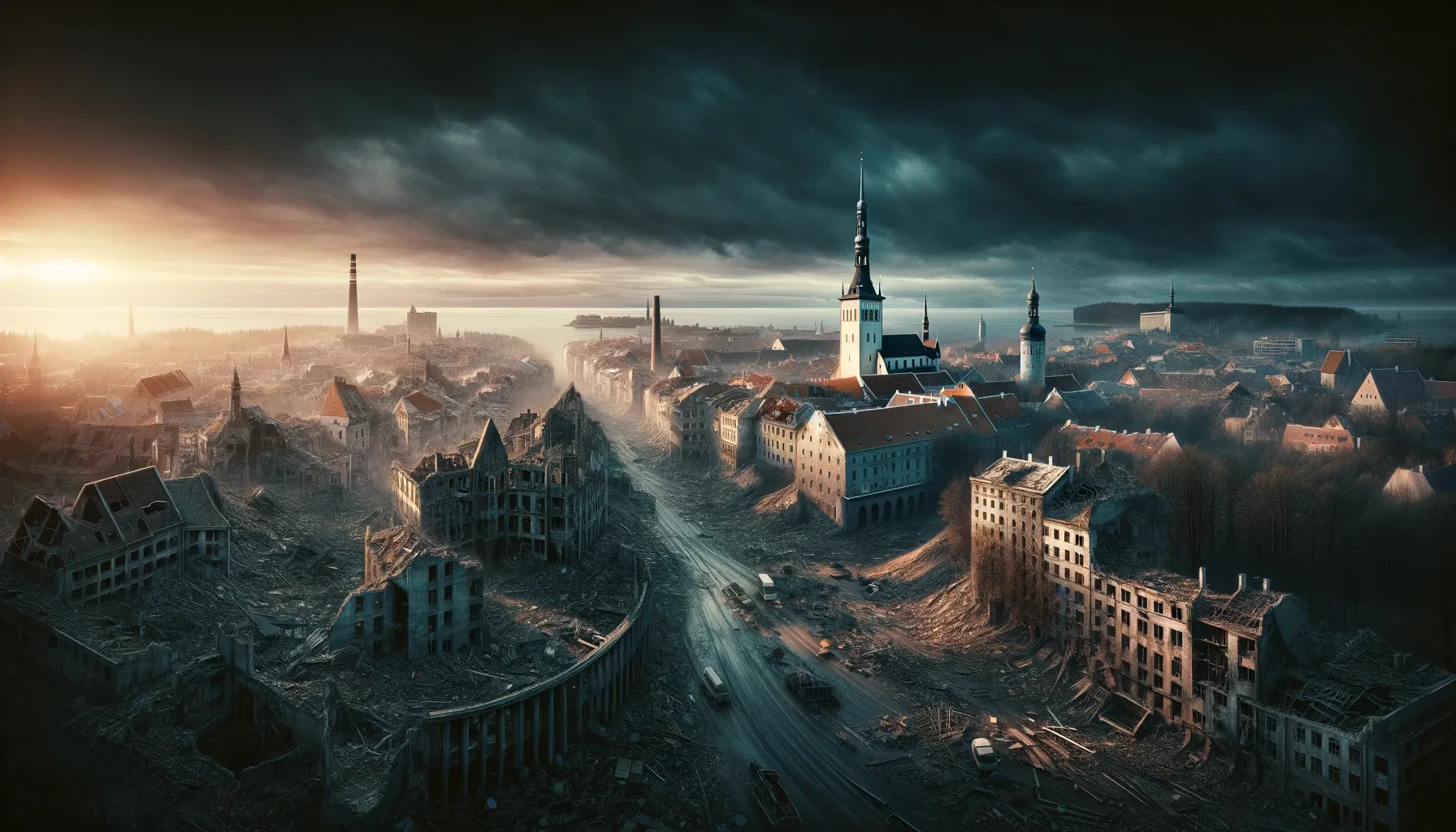Tallinn's Streets Awash in Psychological Terror: Art or Intimidation?
In the heart of Tallinn, a new exhibition titled "Moment" has sparked a heated debate amongst the public and experts alike. Unveiled on February 19, 2024, in the districts of Õismäe, Mustamäe, and Lasnamäe, billboards now display four views of a devastated urban landscape. The creators of the
In the heart of Tallinn, a new exhibition titled "Moment" has sparked a heated debate amongst the public and experts alike. Unveiled on February 19, 2024, in the districts of Õismäe, Mustamäe, and Lasnamäe, billboards now display four views of a devastated urban landscape. The creators of the exhibition, Estookin and Rebeca Parbus, aim to foster a sense of gratitude for the often overlooked aspects of our daily lives - from our freedom and independence to the food on our tables and the roofs over our heads.
However, critics and some city residents argue that "Moment" crosses the boundary from art and awareness into the realm of psychological terror. Given the current global instability and the growing fear of war, the depiction of urban ruins on billboards has raised concerns about its impact on people's mental health.
While the exhibition's intent is to encourage people to notice and appreciate the stability and safety of their everyday lives, reactions to "Moment" have been mixed. Some view it as a poignant reminder of the fragility of our current reality, while others, including psychology experts, see it as a threat to the mental well-being of Tallinn's citizens, labeling it psychological terror. Everyone fears the prospect of war now, and such displays can amplify those fears unjustly.
"Moment" will remain on display until March 3, 2024, allowing ample time for both appreciation and broader discussions about the use of public space and its impact on societal mental health. The question of balancing artistic freedom with public space utilization remains open, especially when art touches on socially sensitive topics.





